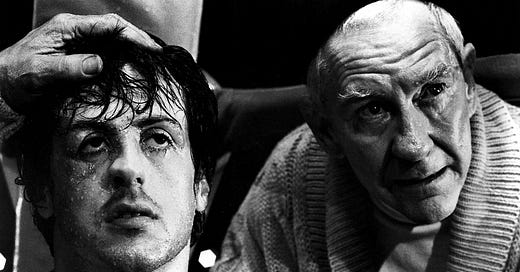While this may seem like I’m taking yet another victory lap for finally releasing an RPG product, I feel the need to talk about a vital part of getting your ideas off the ground; good mentorship. While every creative to some degree sees themselves as a Ronin, it helps to have someone teach you how to use the katana, the naginata, and kanabo before you go around challenging the Shogun of RPGs to duels. In my case, I had some guidance from my wingman Wonkee who has been a freelancer for a few years now. Both of us are indebted to one particular legend though. From the beginning of our venture up to the present, we were guided by the knowledge and experience of Jim Wampler. The time and guidance offered to us by Jim was invaluable. This article isn’t just about gassing up my favorite wizard though. In discussing what Jim did for us, I will be discussing the kind of advice that creators should seek out and listen to. Good advice is often a mix of offering constructive criticism, giving credit for what you’re doing right, and pushing you to continue creating no matter what. A good mentor or group of mentors is an invaluable resource and today we’re discussing how mentorship helped me release Oh Knight Divine.
The first time I mentioned Nighthaven to Jim was live on Rollin’ Bones and those of you who watched the episode know what he said. At that time, I envisioned Nighthaven as a giant box set a la Dark Sun completely forgetting that, unlike TSR in the early 90’s, I don’t have giant piles of money to lose. Jim wasted no time in telling me that while Nighthaven was a good concept, a box set was a terrible idea. Jim apologized later, but there was no need for that. He was right. Jim had done a service for me that any good mentor should do. He told me in no uncertain terms that I was making a big mistake. Did I want to hear that? No, not particularly, but I needed to hear that. Starting out cold, I did not have the cache, experience or skill to do something of that magnitude. I would have been setting myself up to be a lambasted Kickstarter failure. Jim didn’t shut me down when said that. He redirected me towards something more in line with my current skill level.
The next thing that Jim did to help me out was push me towards working with Wonkee. While Wonkee and I had discussed working together a little bit, we didn’t get serious about it until Jim pulled us aside after our conversation on Rollin’ Bones and said “You two need to be working on something.” He didn’t tell us to form Guts N’ Glory, create Oh Knight Divine or His Heinous Harvest, or any of the things we’ve done. He left it up to us to decide what we were going to do, but encouraged us to do it together. This is another thing that a good mentor does. He introduces you to other people who share your vision and can help you accomplish more than you could on your own. Wonkee and I want the same thing and could have gotten there separately, but we decided to journey together and were able to accomplish more in a shorter time. We have our mentor to thank for helping us realize that we could take it on as a unit.
The last and most important thing to point out about Jim and why he was such a valuable resource to Wonkee and I is that Jim Wampler is himself an accomplished creator. Jim has been extremely successful and also made almost every mistake a creator can make. He spoke to us from a place of experience and gave the kind of advice that only a pro could give out . You'll find that there's no shortage of advice given freely by people who believe they know better, but when looking for advice to heed, consider the source. Don't listen to people who have only ever failed or never tried at all. Instead, listen to those who have succeeded. Listen to the people who learned from experience. Mentors who have actually been there and done that are difficult to find but worth seeking out. When you get them to give you your time, listen to them and take their advice to heart. A few sentences from a seasoned veteran is worth more than a whole book by a theorist.
When I think of mentorship, I think of Rocky Balboa and Mickey Goldmill (pictured above). Mickey was often harsh with Rocky, especially when he wasn't living up to his potential, but he pushed Rocky to achieve that potential. A mentorship is not valuable unless your mentor mirrors Mickey in some way. Your mentor should be unsparing with criticism but compliment you when you do well. They should push you to be better than you are now and help you find others to push you harder. Lastly, they should be speaking to you from a place of experience to ultimately push you beyond what they were able to accomplish. The hard-bitten ex-pugilist Mickey may differ in many ways from the often mild-mannered Wizard of Cincinnati, but both offered more than their students ever even realized they needed.




